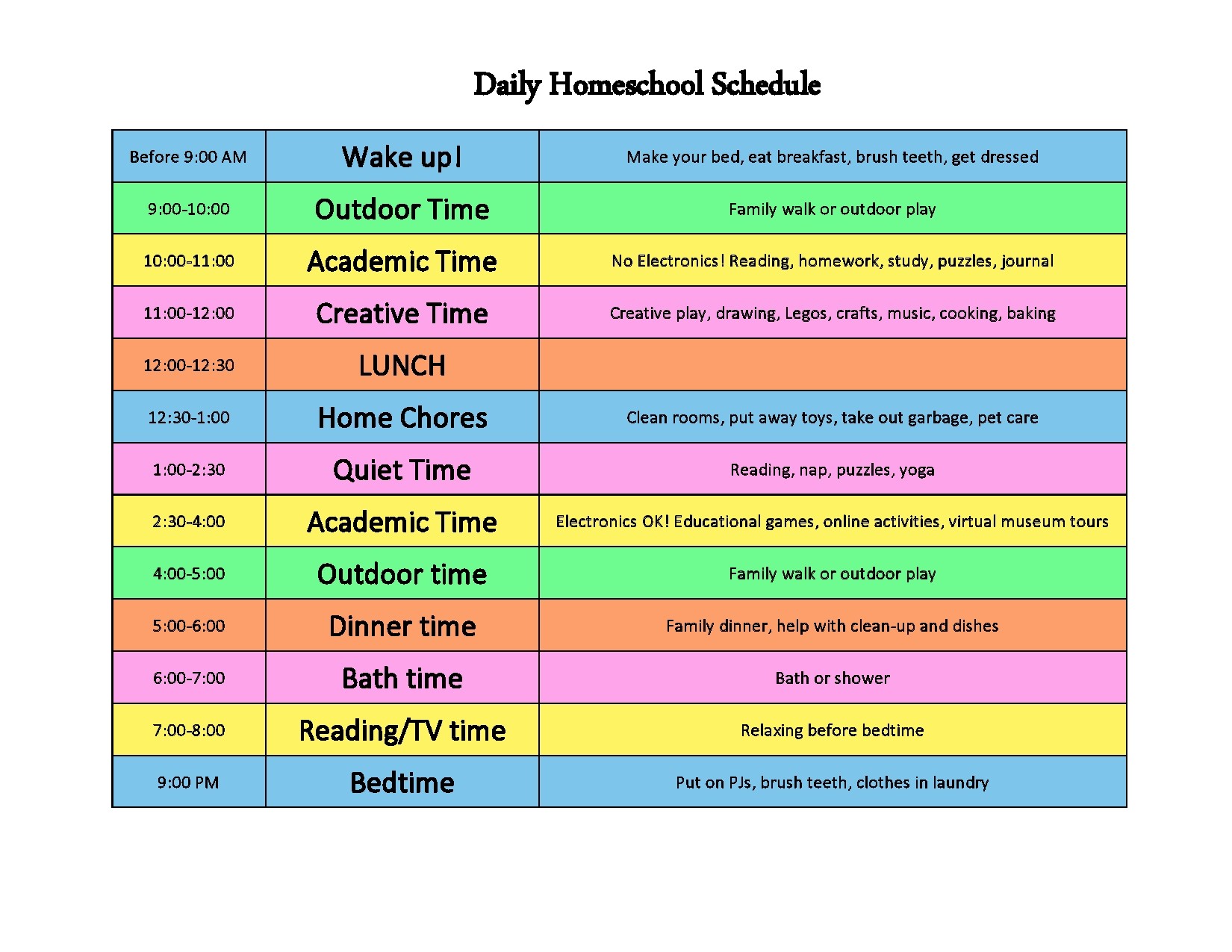Adaptable Learning: Crafting a Flexible Homeschooling Schedule

Crafting a Harmonious Learning Journey: The Power of a Flexible Home Schooling Schedule
Embarking on the homeschooling journey provides the unique opportunity to tailor education to the specific needs and pace of each child. Central to this customization is the creation of a Flexible Home Schooling Schedule, a tool that empowers both parents and students to cultivate an adaptable and effective learning environment.
Understanding the Needs of Your Family
The foundation of a successful flexible homeschooling schedule lies in understanding the dynamics of your family. Recognize the rhythm of your household, the optimal times for focused learning, and the breaks required for rejuvenation. By aligning the schedule with your family’s natural flow, you create an environment conducive to concentration and engagement.
Balancing Structure and Flexibility
Crafting a flexible schedule doesn’t imply a lack of structure. It’s about finding the delicate balance between a framework that provides stability and the flexibility that accommodates individual learning styles. Establish core learning hours for consistency while allowing room for spontaneous exploration and breaks when needed.
Leveraging Block Scheduling for Focus
Block scheduling, where subjects are grouped in extended time blocks, enhances focus and depth of understanding. This approach allows students to immerse themselves in a subject, minimizing interruptions and transitions. Integrating block scheduling into your flexible homeschooling schedule encourages deep learning and fosters a more immersive educational experience.
Adapting to Learning Peaks and Valleys
Every learner experiences peaks and valleys in their energy and concentration throughout the day. Observe your child’s natural rhythm and schedule challenging or focused subjects during their peak learning times. Reserve lighter activities or breaks for periods when their energy naturally dips, optimizing the efficiency of your homeschooling sessions.
Incorporating Life Skills and Practical Learning
Flexibility in homeschooling extends beyond traditional subjects. Allocate time in your schedule for life skills and practical learning. This might include cooking, gardening, financial literacy, or other skills that contribute to a well-rounded education. Integrating these activities not only enhances the learning experience but also prepares students for real-world challenges.
Flexible Home Schooling Schedule provides the opportunity to create a harmonious and adaptable learning environment. By understanding your family’s needs, striking a balance between structure and flexibility, leveraging block scheduling, adapting to learning peaks and valleys, and incorporating life skills, you pave the way for a holistic educational journey.
To explore further insights into crafting a Flexible Home Schooling Schedule, visit SocialFacePalm.


64be9b29b5881.jpg)




